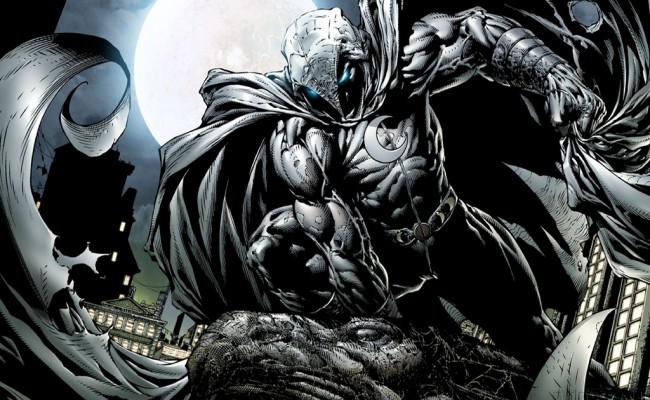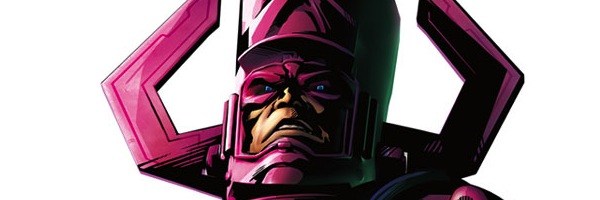 It’s 1898 and missionaries (backed by foreign troops) have infiltrated China, spreading The Good Word and plenty of unrest across the countryside. Some Chinese, like Vibiana, welcome conversion, seeing the promises of Christianity as the only way a girl like her can achieve equality; others, like Little Bao, see Christianity’s attempts to uproot longstanding religious practices as the greatest threat the Chinese people have ever faced. The thing that makes Boxers & Saints so damn remarkable is that Gene Luen Yang has crafted a story where both of these conflicting perspectives can exist simultaneously…and both be right.
It’s 1898 and missionaries (backed by foreign troops) have infiltrated China, spreading The Good Word and plenty of unrest across the countryside. Some Chinese, like Vibiana, welcome conversion, seeing the promises of Christianity as the only way a girl like her can achieve equality; others, like Little Bao, see Christianity’s attempts to uproot longstanding religious practices as the greatest threat the Chinese people have ever faced. The thing that makes Boxers & Saints so damn remarkable is that Gene Luen Yang has crafted a story where both of these conflicting perspectives can exist simultaneously…and both be right.
Here’s the official word from First Second:
Boxers & Saints is a groundbreaking novel in two volumes, presenting two parallel tales about young people caught up on opposite sides of a violent rift. Boxers tells the story of Little Bao, and the companion volume, Saints, tells the story of Vibiana, a Chinese girl who converts to Christianity.
Welcome to the Boxer Rebellion — an uprising that tore through China from 1897-1901, where peasant fighters took on foreign imperialists head on. A messy time for sure, and in his newest two volume graphic novel Gene Luen Yang takes an innovate approach to unpacking this complicated history: he tells both sides.
BOXERS:
It would have been oh-so-easy for Gene Luen Yang to simply depict this story from the rebel’s point of view. We look so unfavorably on colonizers now that Gene Luen Yang would’ve had an easy time simply telling the story of a scrappy rebel fighter who convinced himself (and others) that the Gods had anointed him with superhuman powers, and endowed him with one holy mission: to destroy the imperialist invaders.
And, for the most part, that’s exactly what Boxers is.
Told from the perspective of a peasant boy growing up in rural China, Boxers is essentially a coming-of-age story told with heavy doses of magical realism. We meet Little Bao, who, as a child, suffers at the hands of local thieves who steal food, ravage villages, and finally beat his father into a stupor. All these thugs are granted de facto immunity by the foreign authorities simply because they’ve converted to Christianity — a fact that Little Bao can’t stomach, and which is made worse by a foreign priest’s attempts to erase his village’s religious history. The tension ultimately inspires such a strong sense of nationalism in Little Bao that he grows up to organize a violent rebellion.
Through the course this resistance Little Bao comes to adopt many of brutal methods that Christians have used against him — partially because they’re effective, but mostly because they become the only legitimate way to keep his people safe. His logic: if you kill Christian children, they can’t grow up to kill your Chinese brother; if you you burn a Christian church down, the parishioners trapped inside can’t impede your fledgling military campaign.
As readers, we quickly catch the paradox of Little Bao’s extremist thinking — it is the same flawed and tragic logic being utilized by the Christians, even if the underlying power dynamics are quite different.
SAINTS:
 If there’s anyone who might have desperately wanted a cultural revolution to sweep the Chinese countryside back in 1898, it was probably Four-Girl. Poor and unwanted, Four-Girl was so low on the social ladder that she didn’t even earn a name, just a designation. Her outcast status came from a confluence of factors — her gender, her birth order (the fourth), and the stigma she inherited from her mentally ill father.
If there’s anyone who might have desperately wanted a cultural revolution to sweep the Chinese countryside back in 1898, it was probably Four-Girl. Poor and unwanted, Four-Girl was so low on the social ladder that she didn’t even earn a name, just a designation. Her outcast status came from a confluence of factors — her gender, her birth order (the fourth), and the stigma she inherited from her mentally ill father.
Like Boxers, Saints is a coming-of-age story, rich with elements of magical realism and moments that are both haunting and hilarious. But unlike Boxers, where it’s ancient Chinese Gods that act as Little Bao’s guides, Four-Daughter has visions of the girl-saint Joan of Arc, who convinces Four-Daughter she should convert to Christianity. And take a new name — Vibiana. Christianity is a boon for Vibiana; it affords her family, dignity, and identity. Gene Luen Yang took a big artistic risk humanizing an imperial colonizer, but in the end, it’s what makes these stories work.
Both volumes are beautifully illustrated, masterfully structured, and appropriately subtle — for those of you who read American Born Chinese and were turned-off by the blatant symbolism and thesis-ready literary themes, you won’t find anything that overt here. The notes Gene Luen Yang plays are gentler, although he still holds onto elements of slapstick which might annoy some older readers. Still, Boxers and Saints marks a quantum leap for Gene Luen Yang; it’s funny, tragic, complicated and hopeful.
5/5
_________________________________________________________________________
Max Delgado is the founder and curator of The Longbox Project (@LongBoxProject), a memory project for comic geeks. You can check it out here.














S#!T Talking Central